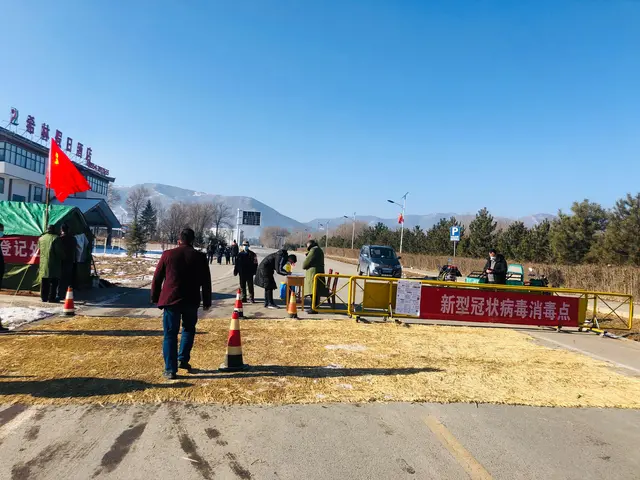This year, Min Guiying canceled all her Chinese New Year plans, a traditional time for people to gather, because of the outbreak of the novel coronavirus epidemic.
"While at home, we can still have video chats, and it also helps our country succeed in the anti-virus campaign," said Min, who lives in the Xiangtiwan community of Yinchuan, capital of northwest China's Ningxia Hui Autonomous Region.
It is Min's first Spring Festival not visiting friends and family. In addition, she only goes downstairs when necessary. Min wears two face masks when taking out the dirty cat litter, and keeps a safe distance when greeting others.
To minimize the risk of cross-infection of the novel coronavirus, Chinese authorities suggest that its residents stay at home by giving New Year greetings through phone or video calls instead of face-to-face visits.
The novel coronavirus can be infectious even in its incubation period, thus posing challenges to its control, especially in China's vast number of communities and rural areas, putting the country's grassroots governance to the test.
Tang Cunli, a doorkeeper in Min's community, has been busy these days dissuading residents from visiting relatives and friends, disinfecting incoming vehicles and registering and taking temperatures of residents passing through.
"We not only safeguard residents' properties but also their health," said Tang, adding that together with his colleagues, he works around the clock to ensure safety.
"Almost all of the visitors are very cooperative, and they leave what they bring with them at the entrance. We disinfect the items, and inform residents to come and get them," said Tang.
To better fight against the virus, a large number of community inspectors across the country are working to ensure returning migrant workers and close contacts of the confirmed cases stay in quarantine.
In Ningxia, all of the 2,789 administrative villages and communities have undergone inspections as of Wednesday, covering over 6 million people, according to the regional government.
"Community workers will help take the temperatures of those in quarantine three times a day and also distribute food supplies," said Shen Jianshe, an official with the local government.
With confidence being slowly built in the government and the country, many citizens and villagers are joining the anti-virus campaign. Han Man from Yejia Village, Jingyuan County in Ningxia is one of them.
Han was elected to be the group leader of five neighboring households with returning members from other places. He takes his neighbors' temperatures once a day and informs them of the latest epidemic-control information.
"Returning migrant workers should stay in quarantine to avoid cross-infection, and I need to observe their health conditions and report my findings to the village chief," said Han.
Ye Hasan, an official in Yejia Village, said the weak link in controlling the epidemic is in the vast rural areas, and it is not possible for the small amount of village staff to ensure that every family's temperature is measured.
"However, as villagers know each other well, they can govern themselves to make sure the infected receive timely treatment with early identification and quarantine," said Ye.
Self-governance also works in most of China's communities, since many residents volunteer to help spread tips of virus prevention by posting notices or creating online videos and jingles. Some even sing adapted folk songs or traditional Chinese operas to encourage more to overcome the virus.
"Amid such a sudden and severe epidemic, the fact that China can rapidly mobilize its people to fight together shows it has sound grassroots governance," said Li Baoping, a researcher of Ningxia Academy of Social Sciences.
However, Li also points out that epidemic control may also expose some weak links in China's grassroots governance. "I believe our governance will be improved a lot after this crisis," he said.
 简体中文
简体中文

